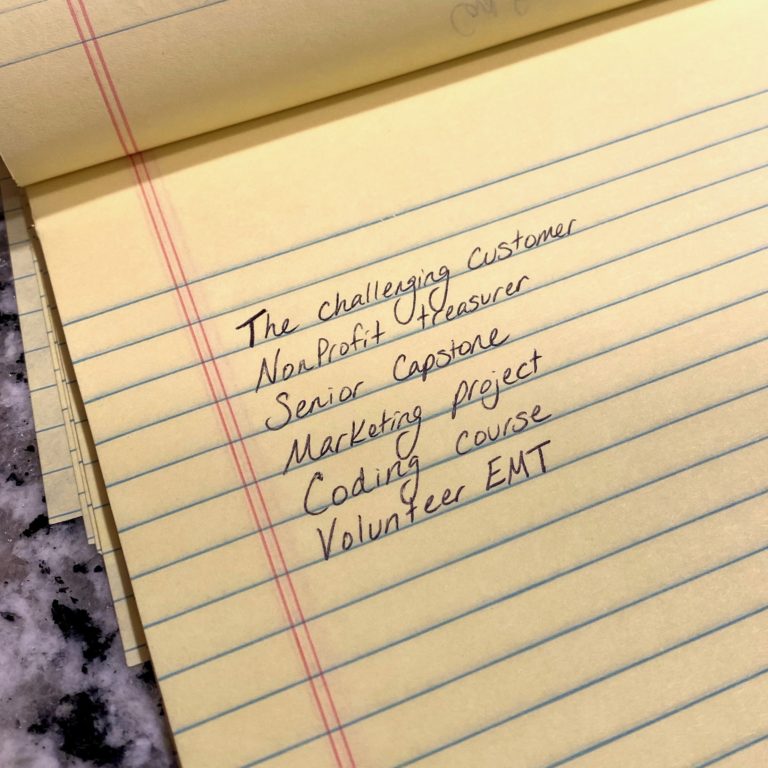Interviews are all about telling stories
Preparing a bank of stories ensures you’re ready to answer any question
I recently came across a website that compiled a list of 100 commonly-asked interview questions. Looking at a list like that can feel completely overwhelming. How can someone possibly come up with—and memorize—answers to 100 unique interview questions, all while sounding competent, confident, and not redundant?
The answer is: You don’t. It’s not possible to memorize 100 unique answers, and even if you did, you would A: Sound like a robot, and B: Likely get a curveball that wasn’t even on your list. So what’s a job seeker to do?
Instead of memorizing a huge list of answers, get comfortable telling 10-15 stories.
When I say stories, I mean a 2-5 minute narrative about a past experience. It might be a story about solving a difficult problem with a customer at your previous job. Another story might be about how you volunteered to serve as the treasurer on the board of a local nonprofit. You could also talk about the role you played in leading your senior group capstone project as a college student. Each of these stories should have a beginning, middle, and end. You don’t need to memorize it word by word, but you should get comfortable with each story’s narrative arc.
The beauty of your story bank is that each story can be used to answer a range of interview questions. That story about working with the difficult customer could be used to answer any of the following questions:
- What is your experience in customer service?
- How do you work with difficult people?
- How do you keep your cool in stressful situations?
- What’s your process for problem solving?
All you need to do is bring it back to the question at the end. “…and that’s an example of how I deliver customer service.”
To keep track of them, I’d suggest giving each story a title, and writing those titles on a pad of notebook paper that you can bring to your interview. Before you ask: Yes. It’s ok (and encouraged!) to bring notes to an interview. It shows that you’re prepared, and you can take additional notes throughout the interview that you might want to reference later on.
You might end up with notes that look like this:

They won’t hold much meaning for anyone else, but for you it can serve as a convenient reminder. If your interviewer asks about your budgeting experience and you draw a blank, you can look down and remind yourself about your treasurer position at the nonprofit.
To get ready, take these next steps:
- List out the titles to your 10-15 stories
- Rehearse these stories with anyone who will listen. Try to contain them to 2-5 minutes, and ask for feedback. Does the story flow? Did you talk too fast or too slow? Did you seem nervous?
- Ask a friend to run practice interview questions with you, and get used to answering with your stories.
Looking for more interview support? Feel free to contact me to talk about interview strategy or to schedule a mock interview.




